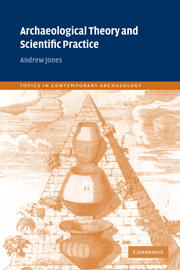Book contents
- Frontmatter
- Contents
- List of illustrations
- List of tables
- Preface
- Acknowledgements
- 1 The archaeology of ‘two cultures’
- 2 Science as culture: creating interpretative networks
- 3 Archaeology observed
- 4 Materials science and material culture: practice, scale and narrative
- 5 Material culture and materials science: a biography of things
- 6 A biography of ceramics in Neolithic Orkney
- 7 Making people and things in the Neolithic: pots, food and history
- 8 Before and after science
- References
- Index
6 - A biography of ceramics in Neolithic Orkney
Published online by Cambridge University Press: 06 November 2009
- Frontmatter
- Contents
- List of illustrations
- List of tables
- Preface
- Acknowledgements
- 1 The archaeology of ‘two cultures’
- 2 Science as culture: creating interpretative networks
- 3 Archaeology observed
- 4 Materials science and material culture: practice, scale and narrative
- 5 Material culture and materials science: a biography of things
- 6 A biography of ceramics in Neolithic Orkney
- 7 Making people and things in the Neolithic: pots, food and history
- 8 Before and after science
- References
- Index
Summary
The next two chapters provide an extended case study that illustrates some of the ways in which we might articulate the methodologies of materials science with the concerns of interpretative archaeology. Before commencing with this, I want to reiterate a point that recurs throughout this volume: we are required to consider the interpretative framework within which we operate prior to undertaking our analyses. Dobres articulates this well with regard to technological studies when she argues that ‘explicit consideration of the sociopolitical nature of technologies cannot be done after the material facts are settled; one cannot simply insert symbolism, questions of value, or the dynamics of social differentiation into a pre-existing materialist pot that, by definition, discounts or downplays them as constitutive elements’. She then goes on to point out, ‘These intangible processes clearly play a structural role in shaping and changing technologies … and if we are to understand how they did so in the past, they must be central to our conceptual frameworks rather than added after the facts are in’ (Dobres 2000, 118, original emphasis).
In this chapter and the next, I will present an analysis in which concerns of a theoretical nature play a central role in determining what and how material is analysed and how this analysis ultimately relates to wider theoretical concerns. My case study focuses on the analysis of a pottery assemblage from the later Neolithic settlement site of Barnhouse, Orkney, Scotland.
- Type
- Chapter
- Information
- Archaeological Theory and Scientific Practice , pp. 103 - 144Publisher: Cambridge University PressPrint publication year: 2001

